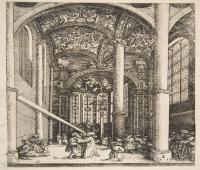
This Sunday’s readings contain sayings from the Book of Ecclesiasticus and from Jesus’ Sermon on the Level. The Book of Ecclesiasticus was written in Hebrew, probably between 196 and 175 BC, by Sirach (Yeshua ben Eleazar ben Sira). He was a Hellenistic Jew and claimed authorship of the book, which was unusual. It was translated by his grandson into Koine Greek, which was spoken widely from about the fourth century BC until the reign of the Byzantine Emperor Justinian. The book has no particular structure but has different themes such as creation, death, happiness and money. It belongs to Wisdom literature, where this quality is personified as a woman.
The Sermon on the Level in Luke’s gospel was in all probability a collection of sayings that the evangelist gathered up and situated in one event. They bear a resemblance to the sayings of Sirach in that they are guides to virtuous living. It is very easy to see the faults in other people and be blind to our own. Jesus, who was sinless, could have pointed out the faults he saw in others, but he only did this when people (like the Pharisees) were quick to condemn, as in the case of the Woman taken in adultery (John 8:1-11): “Let he who is without sin cast the first stone.”
Jesus looked for the potential in sinners, rather than singling out their faults. He called Matthew as a disciple (Matt. 9:9-13), prompted Zaccheus to repent and be generous to those he had defrauded (Luke 19:1-10), and sent the Samaritan woman to be an apostle to her people (John :1-42).
In a world of leaders who care little for their subjects, Jesus is the only one we can look for for sure guidance.